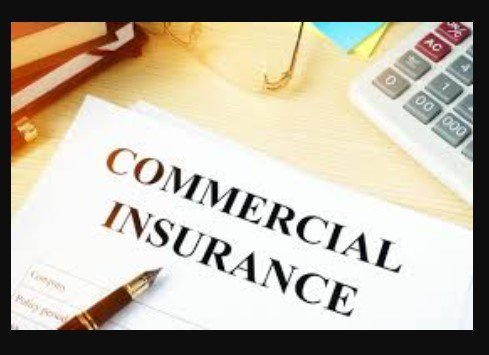What Insurance Do You Need on Your House?

What Insurance Do You Need on Your House?
A home is one of the biggest investments a person can make, so it’s important to keep it safe from undesirable things that could happen and cost a lot of money. Having home insurance gives you peace of mind because it covers you in case of disasters, accidents, or legal issues. Determining the type of home insurance you require is crucial to ensure comprehensive coverage in various scenarios. Consider the most common types of home insurance and other coverage options in this article.
Homeowners Insurance
Household insurance is the most basic type of protection for anyone who owns a home. Typically, homeowners insurance provides coverage for damage to both the house and its contents. If a fire, storm, theft, or crime damages or destroys your home, this coverage can assist you in rebuilding your finances. Liability coverage is often part of homeowner’s insurance. If someone sustains injuries on your land, this coverage can assist in covering their medical bills and legal fees. Lenders want to protect their money, so if you have a debt, you usually have to pay it back.
There are different types of homeowner’s insurance, such as actual cash value (ACV), replacement cost, and extended replacement cost. Different payment methods apply to your claim. ACV policies pay for the value of your home and belongings as they have decreased over time, while replacement cost policies pay enough to buy new things to replace your destroyed ones, even if the value of your items has decreased. Extended replacement cost goes one step further by giving you extra protection if the costs of rebuilding go over the limits of your insurance.
Property Damage Coverage
Property damage coverage is an important part of homeowner’s insurance because it protects your home’s construction. This policy will cover the cost of repairing or rebuilding your home in the event of damage from fire, hail, floods, or any other natural disaster. This generally includes damage to the roof, walls, floors, foundation, and even separate buildings such as garages, sheds, or fences.
Property damage coverage can save you a lot of money when natural disasters happen, because it can cost hundreds of thousands of dollars to rebuild a house. For instance, a severe storm or fire could render a house uninhabitable, necessitating costly repairs. People without property damage coverage may have to pay for repairs, wiping out their savings.
Personal Property Coverage
Personal property coverage is another important part of homeowners insurance that covers your things inside the home. Personal property includes items such as furniture, electronics, clothes, jewellery, and even personal items like art or musical instruments. If you lose, steal, damage, or destroy these items, personal property coverage ensures you can replace them or receive compensation.
Personal property insurance typically includes two types of protection: real cash value and replacement cost. Actual cash value tells you how much your things are worth now minus their depreciated value. Replacement cost, on the other hand, tells you how much it would cost to replace the lost or broken items without taking depreciation into account. If you need to file a claim, it’s important to make a list of all your things and keep it up to date. This list should include pictures or videos of your things.
Liability Protection
Liability protection, a crucial component of homeowners insurance, safeguards you from legal blame for any injuries or damage occurring on your property. For instance, if a friend slips and falls in your home, liability protection will pay for their medical bills, legal fees, and any settlements or judgements that may come up because of the accident.
This coverage includes more than just people who come to your land. If you have liability insurance, you may not be responsible for any damages or injuries your pet may sustain. If someone sues you for an injury or accident, liability insurance can help protect your money by paying for things like court fees, lawyers’ fees, and any judgements.
Flood Insurance
Flooding can occur unexpectedly, particularly in areas with heavy rainfall or near water bodies. Unfortunately, homeowner’s insurance typically does not cover storm damage. It’s important to get special flood insurance if you live in an area that is prone to flooding. You can get coverage through private insurance through the National Flood Insurance Program (NFIP). This program can help you get the money you need to fix or rebuild your home after a flood.
You should think about getting flood insurance even if you don’t live in a high-risk flood zone. Flood damage can be terrible and expensive. Floods don’t just happen along the coast or in riverfront areas; flash floods can happen anywhere, and many homes aren’t ready for how severe they are. With extra insurance, you can protect your home and belongings.
Earthquake Insurance
Another important thing to think about is earthquake insurance if you live in a place where they happen often. Normal home insurance doesn’t cover damage from earthquakes, so people who live in places with a high risk must get extra coverage to be safe. Most of the time, earthquake insurance will pay to fix up your house after an earthquake, including fixing any damage to the building or your belongings inside.
Earthquake insurance can cover more than just damage to buildings. It can also cover costs such as temporary living expenses in the event that the accident renders your home uninhabitable. Even though earthquakes don’t happen very often compared to other natural disasters, they can do a lot of damage to buildings, and the costs of rebuilding can be very high. Because of this, people who live in places that are prone to earthquakes, like California, Alaska, and some parts of the Pacific Northwest, should really think about adding this coverage to their insurance.
Umbrella Insurance
Even though homeowner’s insurance includes risk protection, some individuals may require additional coverage, particularly if they own numerous valuable items or engage in activities that could result in significant claims. The purpose of umbrella insurance is to provide additional risk coverage beyond that of your standard homeowner’s insurance. This insurance covers you when the risk limits on your home or car insurance run out.
If you face a lawsuit, umbrella insurance can significantly reduce your expenses by covering legal fees, medical bills, and losses that surpass the policy limits. For instance, if you are sued for more than your homeowners insurance covers because someone got hurt on your land and you are found responsible, umbrella insurance can help pay the difference. People often advise those with valuable possessions or frequent guests to purchase this extra security, as it’s not overly expensive.
Home Business Insurance
If you run a business out of your home, your homeowner’s insurance might not cover things that happen at work. Standard homeowner’s insurance policies typically do not cover business equipment, liability, or business-related risks. People who live in their own homes and run companies from there, like a consulting business, an e-commerce store, or a freelance business, should think about adding a home business insurance rider or getting a separate business insurance policy.
Your computers, equipment, inventory, and materials are some of the things that your home business insurance will cover. Additionally, it shields you from potential lawsuits in the event that a client or customer sustains injuries while visiting your home office. Additionally, it might provide coverage for business interruption, ensuring you won’t suffer financial losses in the event of a protected event such as a fire or natural disaster.
Additional Living Expenses Coverage
In the end, if your home becomes unlivable because of an insured event like a fire, storm, or theft, additional living expenses (ALE) coverage can help pay for temporary housing and your daily costs. This could include hotel nights, eating out, and other living expenses you wouldn’t have at home.
Even though ALE coverage is usually part of normal homeowner’s insurance, it’s important to check the limits of this coverage to make sure they meet your needs. If the damage to your home forces you to live somewhere else for a long time, ALE can help you out financially by paying for some of those extra costs.
Conclusion
The coverage you need for home insurance varies depending on your situation, where you live, and the risks you face. Flood, earthquake, and liability insurance, along with homeowners insurance, can protect your house, your belongings, and your finances in important ways. People who have extra risks or special needs should also get umbrella insurance and home business insurance.
When choosing home insurance, you can make an informed choice if you know the different types of coverage and what your unique needs are. Make sure you have enough insurance to cover the unexpected and talk to an insurance agent about how to customize a policy that will give you peace of mind and protect your home and belongings.






